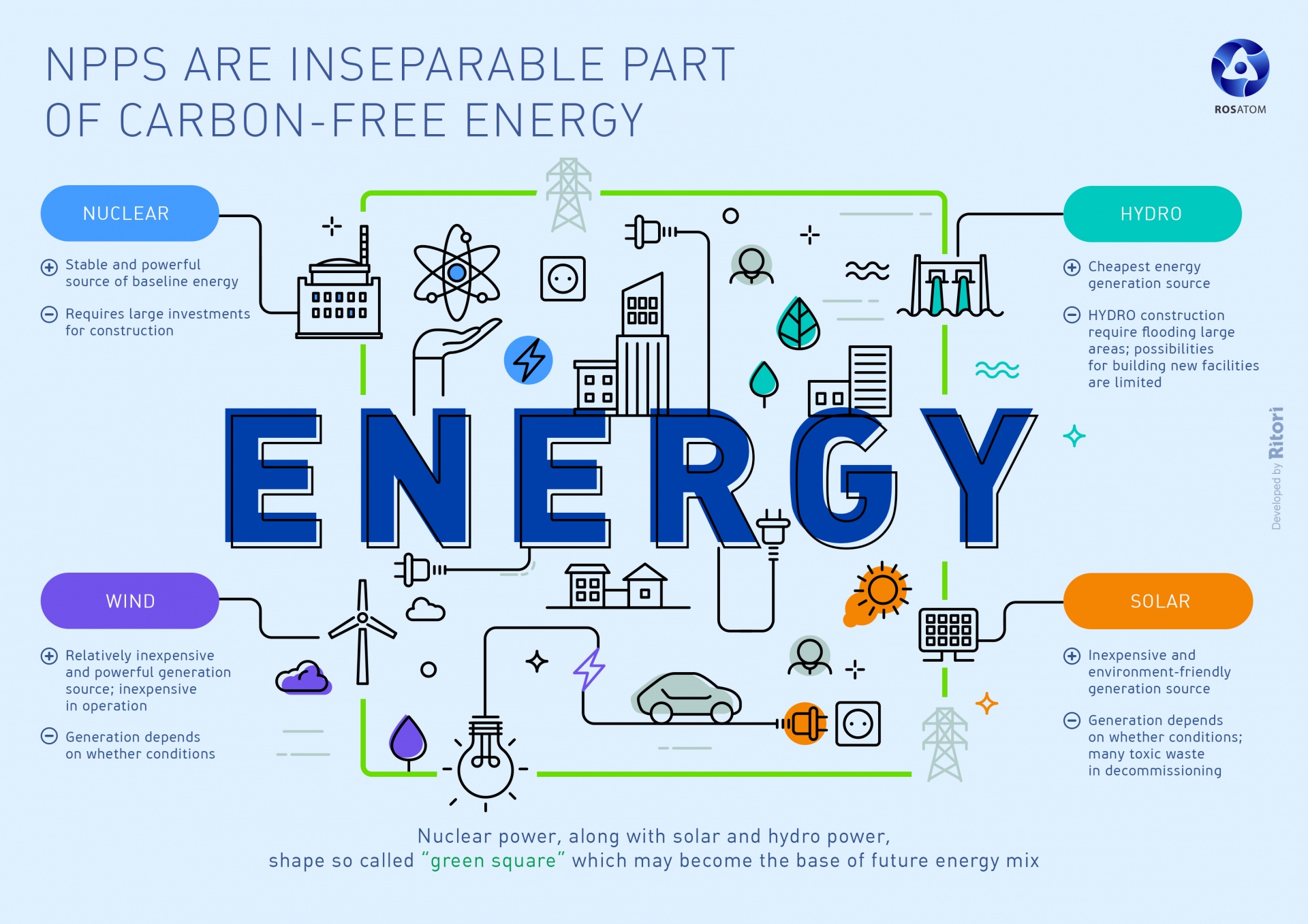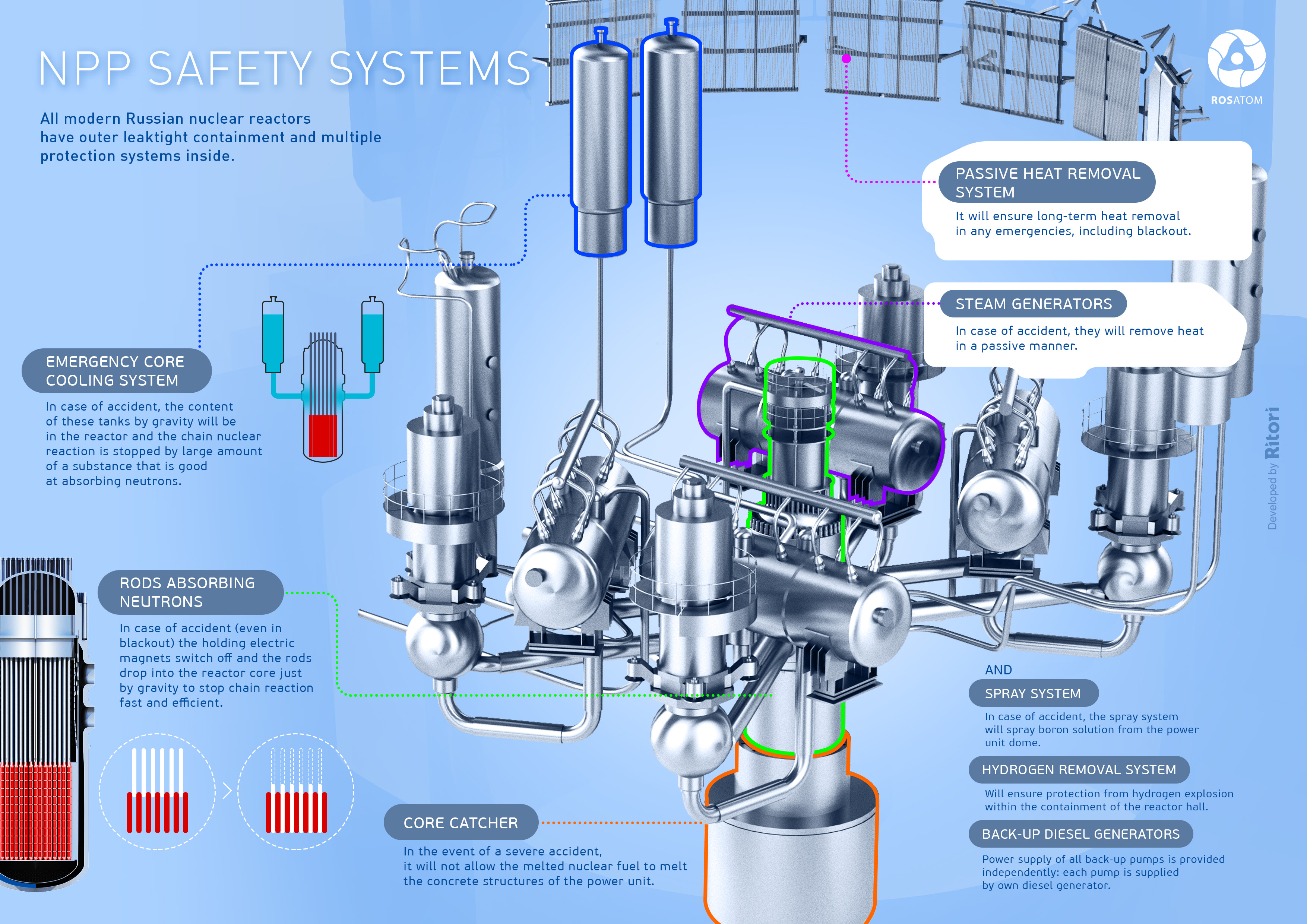What are the benefits of nuclear energy?
Enormous capacity
One kilogram of 4%-enriched fuel grade uranium releases energy equivalent to the combustion of nearly 100 tons of high grade coal or 60 tons of oil.
Reusable fuel
Uranium-235 is not fully burnt up in the reactor and can be re-used after regeneration (unlike ash and slag remaining after fossil fuel combustion). With future transition to the closed fuel cycle, the technology will generate zero waste.
Greenhouse gas reduction
Rapid development of nuclear power can be regarded as a means of combating global warming. Every year, nuclear stations reduce CO2 emissions by 700 million tons in Europe. Russian nuclear stations prevent nearly 110 million tons of carbon dioxide from being emitted in the atmosphere every year, making Russia the world's fourth country in terms of CO2 prevention.
Economic boost
In the current conditions, nuclear power is one of the most important sectors of Russia’s economy. Dynamic development of the sector is one of basic conditions to ensure energy independence of the state and stable growth of the country’s economy.
Totally, 11 Russian NPPs operate 37 power units of total installed capacity over 29.5 GW, including:
- 22 power units with VVER reactors (of them: 4 power units – VVER-1200; 13 power units – VVER-1000; and 5 power units – VVER-440 of different modifications);
- 11 power units with pressure-tube reactors (8 power units - RBMK-1000 and 3 power units – EGP-6);
- 2 power units with sodium-cooled fast neutron reactors (BN-600 and BN-800);
- 2 reactor installations KLT-40S of electric power capacity of 35 MW each in the floating nuclear co-generation plant (FNPP).


